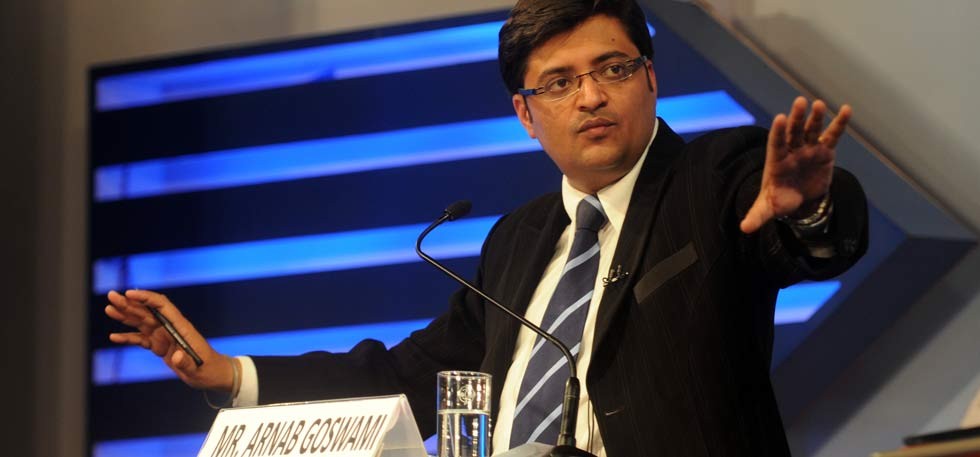Why the Biggest Newsbreak of the Year Was Also the Biggest Journalistic Failure of the Year
A year after the BJP government came to power, several surveys about its performance were conducted. Although the results of every section varied from survey to survey, one constant all across the board stood out. The question asked was which area did the government best perform in and the answer overwhelmingly, was foreign policy. This was a no-brainer really. That we had a government which considered our equations with the rest of the world as important as its duty within our borders was for all to see.
Whether it were the prime minister’s highly successful trips abroad, the huge foreign investments, the no-nonsense attitude in dealing with Pakistan, the craftily executed rescue from Yemen- the list goes on. It is believed that the prime minister micromanages foreign policy, but in Sushma Swaraj he found a competent executor. She wasn’t known to be a fan of the prime minster before the elections but she was quick to shed her political differences. She used her vast experience to drag the foreign ministry out of the indecisiveness and slumber it had fallen into. All that any Indian in distress abroad had to do was to tweet to her, and she would make sure the person was taken care of. Indian embassies and consulates worked with a proactivity never seen before.
But then, India had trigger-happy Arnab too. One cannot deny the fact that his vociferous stance against corruption and VIP culture has had an impact in the country. It certainly had more of an impact than the Aam Aadmi Party, which was founded upon these very values. But the reality of it all, is that Arnab is no crusader. He thrives on the misdeeds of those in power, he attracts more eyeballs the crankier he gets every evening. For the last one year, he hasn’t found much to cause a ruckus about. The atmosphere has been largely positive, those at the helm of affairs have been clean. How he took on the makers of a documentary on the Delhi gang-rape unfurling one irrational argument after the other, was a testament of the bankruptcy of issues to take on the establishment. (Also, a rival media house bagged the broadcasting rights of the documentary.) How he took on the Indian cricket team alleging a below par performance in the world cup, the team which made it to the semi-finals unbeaten and was defeated only by the home side which went on to become the world champions, was another instance. As his competitors caught up and he lost credibility day by day, he needed a big issue that he could champion to re-emerge as the undisputed number one.
It was planned to perfection. He promised to give his viewers the biggest political newsbreak of the year. He gave it at nine o’clock on a Sunday morning, and it was picked up by other media outlets at eleven. So as India lunched on Sunday, the media systematically brought disrepute to Sushma. No longer was she portrayed as our proficient foreign minister, but as the helper of a fugitive. The timing of the newsbreak confirmed that either those who broke the news or their sources, had an obvious motive: defame Sushma.
If one were to get into the charges levelled against her, why she wasn’t at fault would become abundantly clear. A case of conflict of interest, that some people are making it out to be, cannot arise here for a very simple reason. Just because she is the minister of external affairs, does it mean that any of her husband’s or daughter’s clients cannot interact with her ministry? Does it mean that her ministry cannot take a professional decision, however professional it might be, if it were to be favourable to one of her kin’s clients? In the case of Lalit Modi, how professional the decision actually was to give UK the go-ahead to process his documents and how genuine his humanitarian ground was, could have been debated back then if the media would have been fast enough to catch on to the story. But unfortunately, it wasn’t. Some weeks later, the Delhi high court restored Modi’s passport which had been revoked by the Indian government. So if the court thought it fine for Modi to have a passport and travel however and wherever he wanted to, on what ground is the media painting Sushma in a bad light for facilitating the same thing, and that too now? The ground on which the high court restored his passport is even more interesting. According to it, the violations which Modi was charged with do not require custodial interrogation. The accused can be interrogated using any alternative mode, like video conferencing. The UPA government declared him an absconder and revoked his passport without ever exploring such options. So when the media and political rivals compared this instance to helping Dawood Ibrahim out on humanitarian grounds if such a need ever arose, it was to put it lightly, mind-numbingly stupid.
Arnab and others might have generated the TRPs they so desperately seek by misrepresenting this story. At one point that Sunday morning, he went on to say he had information that the BJP had decided not to back Sushma. But if these suit clad men in our television studios have the courage to say that journalism is not about sensationalism and rhetoric, no, it is in fact about facts, bringing facts to the masses as fast and accurately as possible, then the biggest newsbreak of the year would also be the biggest journalistic failure of the year.
